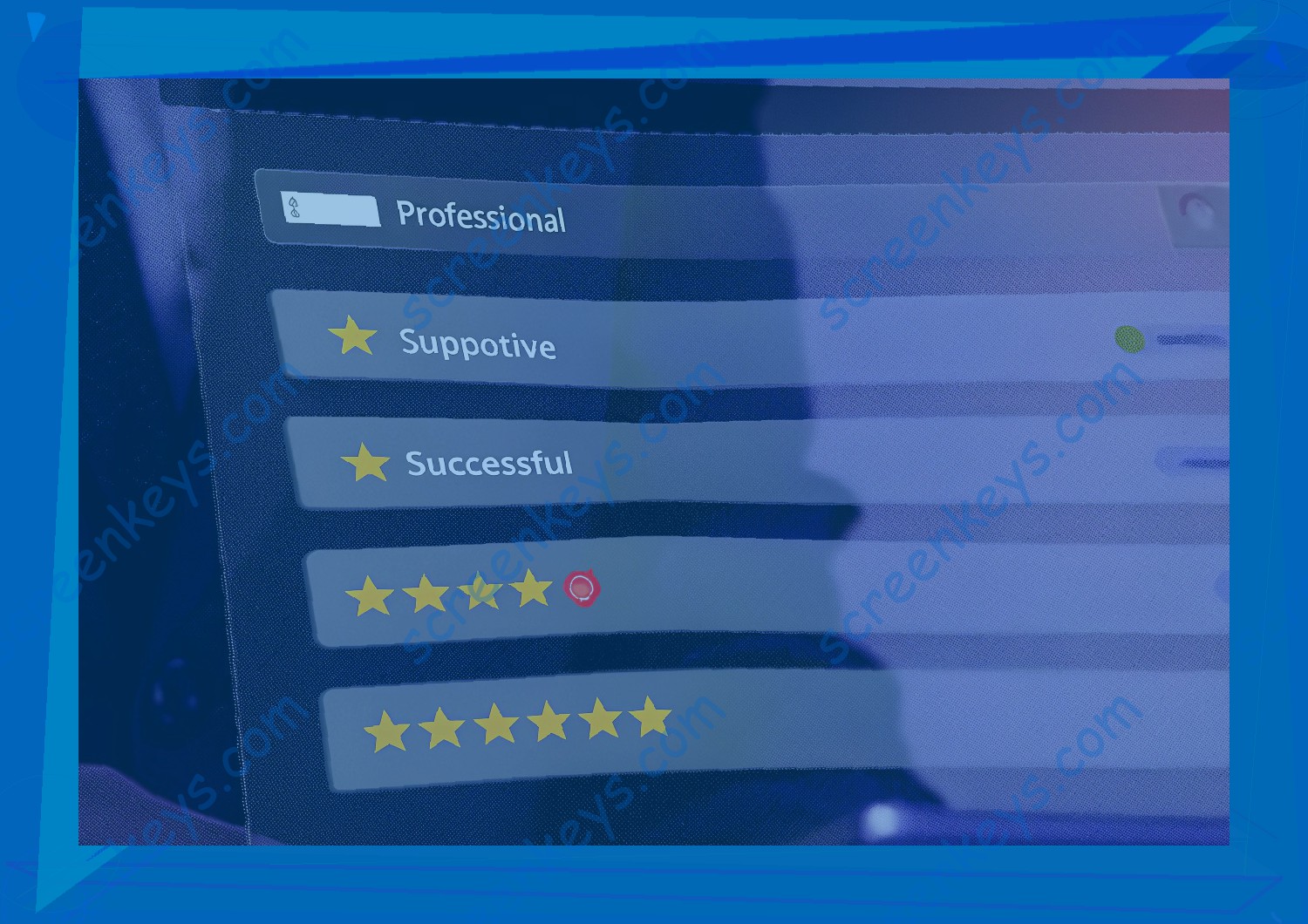How Law Firm Reviews Benefit Law Firms
Online reviews are a significant source for potential clients to find and connect with a law firm. Research conducted by Google, in partnership with Ipsos MediaCT, shows that 71% of people form an opinion about a company after reading just one or two reviews, and 86% of consumers will hesitate to patronize a business that has little to no online reviews. From that research, it’s clear to see how having a controlled review strategy can help to drive web traffic to your firms site through search engines, and subsequently convert them into potential clients.
A survey by Bright Local has found that positive reviews make 73% of consumers trust a business more, and that 79% of consumers trust online reviews as much as personal recommendations. A survey conducted by Podium further supports these findings by showing that 77% of consumers read online reviews to find a business, and that 79% of consumers say that user-generated content (UGC) like online reviews highly influences their purchasing decisions .
Research conducted by Podium shows that the average consumer reads up to ten online reviews before making a decision on a firm and seven out of 10 consumers would avoid using a firm with an average rating of two stars out of five. For your firm, this essentially means that the more reviews you have the better, and each review you gain has the potential to positively or negatively impact the customer’s perception of your business.
The importance of a review and its potential benefit to your firm is quite massive when you really think about it. Through the management of reviews, you can encourage or dissuade potential customers from either seeking out or avoiding your firm. It’s the single biggest self-marketing systems you can set in place.
How To Write a Good Law Firm Review
The real test of a review is whether or not you learn anything salient about the firm in question. Do you have any idea of what kind of firm the reviewer was served by? Are they a large or small firm? What practice areas do they focus on? Were the attorneys involved in the case from the beginning or were they brought in later? What kind of case did they represent them in? Was there a successful verdict for the client?
For example, a review such as this might offer more information about the service you would receive with this firm:
I met [attorney name] when he was a partner at [law firm name], during a particularly difficult part of my life. Unexpectedly, I found myself getting divorced from my husband and worried about my three children. [Attorney name] handled every detail and was so professional while being a huge support, I can say he was always there for me. Luckily, it all turned out in my favor and there were no problems that [Law Firm Name] couldn’t solve. If you could see the swift way my case moved forward. I was able to keep the home I’d lived in for over 20 years due to his convincing arguments and strategic planning.
The above review not only reveals how the customer benefitted, but also gives you insight as to the characteristics of the firm.
Some elements of a review that you will want to be on the lookout for:
Does this review give me a good picture of who the firm may be suited for? If you’re using Google My Business, do you see any reviews that give detailed information about what the firm was like? If you do, these give you clues as to whether it may not be a good fit for your legal needs.
Let’s take a look at some examples:
On Google My Business listing
As we can see above, the review is vague and doesn’t provide clear information about the services the firm provided to the reviewer. While the number of reviews is good, the lack of information creates a hole for potential clients looking to hire them for their firm.
Here, we have a review that is clear and to the point. It highlights the successes the firm had while giving potential clients an idea of what to expect when they work with them. The most recent review "My lawyer won my case" is clearly a criminal defense lawyer, and the former client wasn’t wondering about their representation.
Real-Life Samples of a Law Firm Review
The reviews section is the heart of the Law Firm Profile. This is where potential clients interact with your firm, leaving their impressions of their experiences, while visitors, prospects and clients are able to observe those impressions in order to assess your firm. Because there is so much at stake, it is important to know how to acquire impactful reviews, how to update them and how to respond to them, both good and bad. Let’s look at some examples of these reviews.
I recently worked with a personal injury law firm based in San Diego, California. It is a small firm, but has been in business since 1977. Solid reputation but low case volume. When you entered the firm’s name into the Google search engine, several of these reviews would come up in the search results. At first glance, they look good because the rating is fine. However, when you actually read what is at the top, you quickly discover that it is just two sentences and not very descriptive. The reviews go on for several pages (47 pages in total according to the search results). So, you will have to click on a page to read the reviews one-by-one or scroll down the page for quite some time to read through them. Some of these reviews require a customer to page up to read the segments that are cut off in the preview.
This is not necessarily a bad thing; however, with that many reviews there is bound to be a mix. For example, here is a review that is difficult to read and is summarized in two words: "Pages Up." You will have to click forward in order to read this.
In contrast, here is an example of an exceptional case review by a personal injury client in San Diego. This review is detailed and explains how and why the client was injured. She discusses how the firm maintained contact throughout her case, how and why the settlement amount was fair and reasonable, how the attorneys were knowledgeable and professional, and why she chose to work with the firm in the first place. This is a model review that puts almost every piece of information in the right place. It is an excellent example of a clear and relatively short, but complete testimonial.
Here is another great example of a law firm review for a Glendale, California family law practice. This is a very good example of a family law review as it addresses many issues that commonly arise with family law issues. It addresses why this person sought out this particular family law attorney in the first place, it discusses the treatment of their case, it describes how professional, patient and knowledgeable the attorney is, it mentions how organized the office is and how the staff were very accommodating. Again, this law firm review is a good example of how well this firm utilizes Law Firm Profile to promote themselves to future and potential clients.
How To Encourage Your Clients To Either Leave A Review, Or Update Their Existing Review For You
Clients are often so grateful to law firms for service and for some firms that pride themselves on providing ongoing great service to all their clients, you might have a client leave the firm and want to write an online review for you.
One way that you can ensure that will happen for your firm is to ask for it directly. While much work goes into the email newsletters and the regular email blast that you put out as well as your website and all of the social media updates you are doing – there may not be much guided interaction with your firm once they become a client.
One of the best ways to convey the message to your client about the value of having a review created online is at the conclusion of your services. Use the same tool as you have been using for your newsletters and create another email to it to follow up all of the good things you have done for the client. Then ask them if they will leave you a review and direct them to the links for Google+ , Yelp and Avvo.
If a client is enthusiastic then they are more likely to let you know if something has gone wrong with your service or if there were questions that were not answered. But that does not always happen because people are busy and have a lot on their plates. So, one of the easiest ways to ensure that your clients do review the services they received from your firm is by sending them a follow up email that reminds them how much work you did for them and how happy they should be with the service they received, and asks them to spread the cheer by leaving a review online – just to make it really easy for them. It is the type of ask your clients will appreciate and be likely to respond to.
Another option is to incentivize your clients to provide a review. For a lot of people who are rushed a bit of incentive can soften the guilt of not leaving a review earlier and prompt them to take the time to leave a review.
Some examples of things a Firm can offer to a client in return for a review on Google+, Yelp or their website are:
How To Respond To An Extremely Negative Review
As important as it is to ask clients to give you positive reviews, it is equally as important (some would say critical) to respond to those negative reviews in a timely and professional manner. For worse or worse, your response will be accessible to the public, so you will want to make sure it is worded carefully. Online review sites such as Google will often display your response to your customer’s review directly underneath the review.
The first step to responding to a negative review is to acknowledge your client’s concerns. Voice to your client that you’ve heard the concern, and that there is truth to it in some form or another. There may be a distinct difference between their complaint and what happened, but you’ll want to keep in mind that your client has spent time and effort writing a negative review, and even if it isn’t spot on, there is some frustration that is coming through there. Acknowledge that. Even just to say, I’m sorry there has been a miscommunication on this issue. We are looking into it.
The next step after showing empathy to the consumer is to provide a logical explanation of what happened, but do not try to blame others, or explain away what has occurred. Even if the end result of the situation is that you are not at fault, and the client is being unreasonable, you must simply reply that, "I am sorry you feel this way. It is incredibly important to me that our clients feel good about their experience with us. That is why we are currently reviewing the account. Please call me at xxxxx.xxx.xxxx so that I can speak to you directly about this."
You may be tempted to go into great detail about what the firm views as the true cause of the issue, but people want solutions. They do not want to hear you place blame on the person charged with handling their account. You will not be able to turn that negative review into a positive review if you take the finger pointing route. Similarly, don’t get into specifics about your company, including detailed descriptions of your policies or procedures, or how your employees are trained. A potential client doesn’t know who Julie Jimson is – she only knows how her experience with your company went, and usually that experience was just at the hands of one employee. I cannot stress enough how important it is to keep it short. Your customer has already taken the time to write a negative review – don’t insult them by trying to talk them out of it with a lengthy response.
Another strategy is to try and take some of the blame for the situation, but not all. Next, offer to take a specific course of action to solve the problem and offer a way to contact you specifically. Offer to right the wrong. Offer a manager’s phone number, or a different representative, so that they do not have to speak with the employee who they were so dissatisfied with.
Finally, I highly recommend that you end your response on a positive note. Reaffirm your commitment to take care of the situation and encourage your customer to call you personally. Sometimes the customer will rewrite their review, once the problem is resolved.
The Benefits Of Client Reviews Online for Law Firms in Search Engine Optimization
When it comes to outlining the search engine optimization (SEO) benefits of client reviews, I assume that you’ve heard the common expression "content is king." There’s no other element of law firm search engine optimization that is more important than content creation and distribution. Lawyers struggle to enter content into their websites on a regular basis, but writing lengthy articles or blog posts takes a great deal of time and they don’t see immediate results for their investment. Client reviews, however, are an entirely different animal – they don’t require the exacting precision of professional copywriting, the task of writing a review is readily accepted by most clients, and the results are more immediate.
Reviews from satisfied clients add content to your website which fulfills several valuable SEO factors:
Longer content ranks higher in the search results – a naturally written review from a satisfied client will be longer than most self-written content so this automatically improves your chances of ranking well.
Content changes frequently – one of the first factors which Google considers when creating its search results page is when your content was last updated and a new review, almost every time, will give you a recent update.
Adding more content frequently is key – Google looks for frequent updates in site content. Again , a fresh review from a happy client will provide this.
Keyword Density – Google also compares how frequently specific keywords are found on a webpage and will rank those pages which have the highest density on the subject higher than those with less density. Most client reviews will contain the name of the author, the name of the law firm, some adjectives or phrases about the service provided and the practice area. For this reason, they can add a great deal of density for a relatively limited addition of content.
Client reviews posted on third party sites such as AVVO are not indexed as high by the search engines, though they are identified as coming from a reputable source. Client reviews on a third party site will help the search engines recognize your firm as a reputable law firm. In addition, linking back to your own site will help drive traffic to your website which will result in higher rankings. Testimonials on your own website, even though they are less visible and have a lower ranking in the search engines than those on third party sites, will still provide a valuable service in terms of building up keywords of familiarity with those who are searching for your services. They will also serve as a way to describe what makes you unique when compared with other firms.




